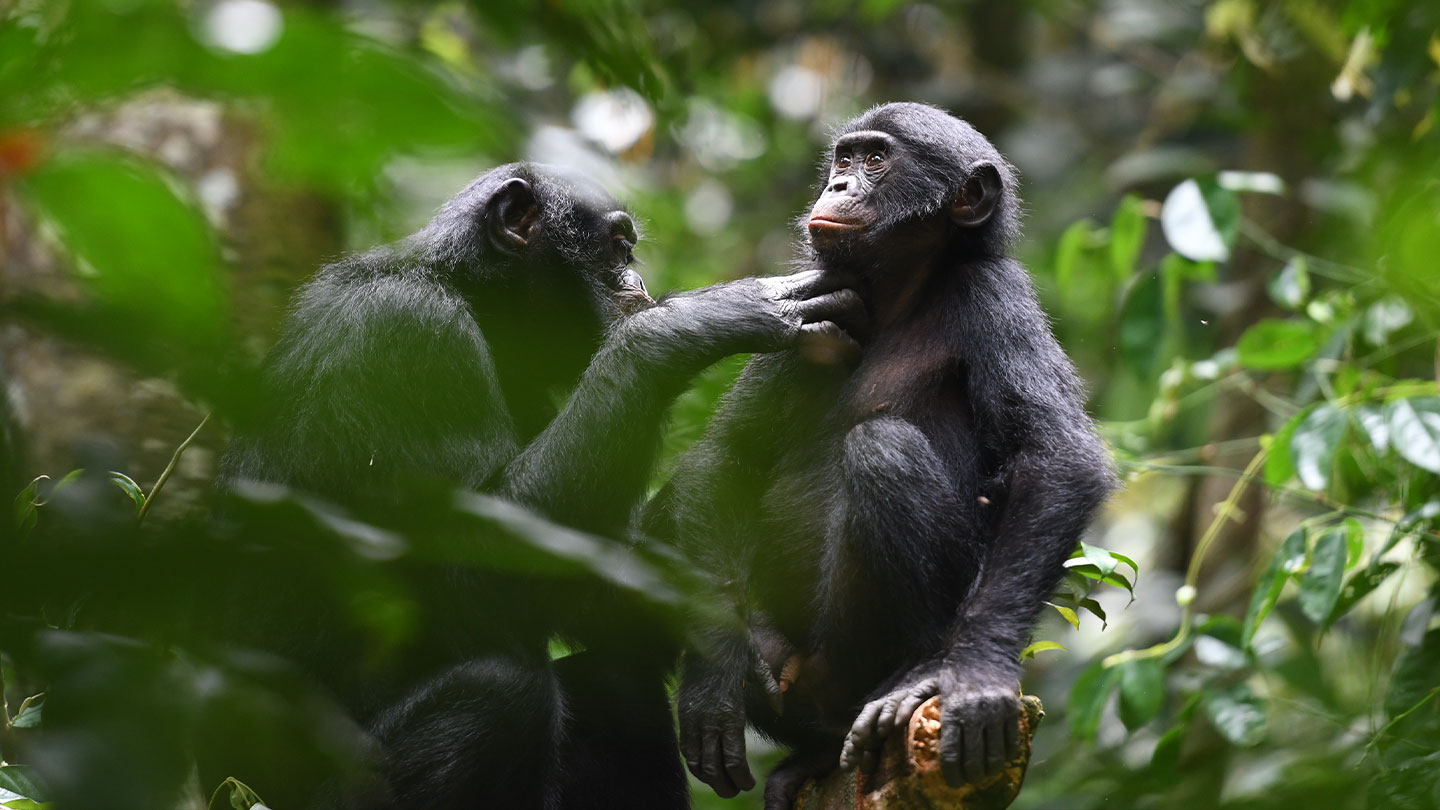Humans regularly cooperate and share resources with other, unrelated humans in different social groups, often without any immediate, reciprocated benefits. The phenomenon has been considered unique to our species. But some bonobos appear to share this social trait, a study finds.
Both chimpanzees (Pan troglodytes) and bonobos (P. paniscus) live in social groups with individuals that may not be very closely related. But compared with territorial and aggressive chimpanzees, bonobos have a more easygoing, tolerant attitude toward other groups. Bonobos occasionally groom and share food with unrelated individuals from other social groups and have even been known to adopt outsiders’ young (SN: 3/18/21). But the extent of the apes’ cooperative behavior has been unclear.
So behavioral ecologists Liran Samuni of the German Primate Center in Göttingen and Martin Surbeck of Harvard University studied two bonobo groups in the Congo’s Kokolopori Bonobo Reserve. Over two years, the team recorded which bonobos exchanged grooming services and shared food, and when.
Conflict and competition are not completely absent among bonobos. So the researchers also recorded when the apes formed alliances with members of the other group, cooperating to attack a third individual.
2023-11-16 14:08:36
Link from www.sciencenews.org
